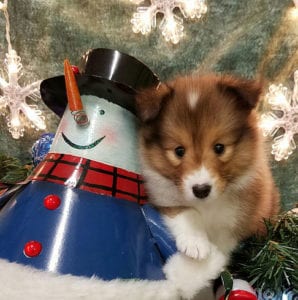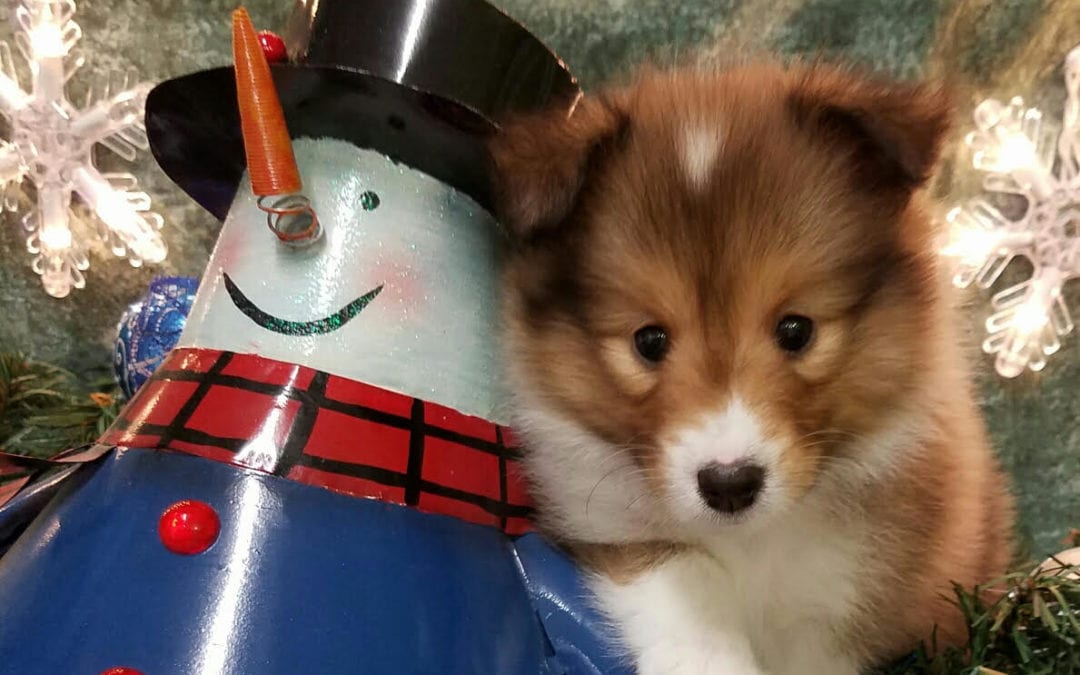Getting a puppy is a big responsibility. The first few weeks with a puppy in your home will be busy because a new puppy is very demanding. It is not uncommon for new puppy owners to doubt their decision of adding a new puppy to their home. Remember, things will get better and they will grow up. The more effort and time you put in now, the better the future will be for your pet and family.
Things a new puppy home needs:
- Puppy collar, leash, and tags
- A size appropriate dog kennel to aid in puppy training
- Chew toys
- Dry puppy food (sometimes canned as well if it is a toy breed)
- Bitter apply spray or another safe spray that discourages chewing
- Baby gate to block off unsafe rooms or minimize unattended time in the home (at first)
- A book on puppy training
- A veterinarian appointment (even a well check if vaccinations are completed to discuss grooming needs, puppy training, dietary recommendation, etc.)
- Hard to destroy bedding that is easily cleaned
- Previous medical records/history for your veterinarian
Be sure to block off a few pet-proofed rooms with baby gates to help you to closely monitor your puppy as it adjusts to your home. It is very important to catch your new puppy in the act of an undesirable behavior so they can be immediately corrected and redirected. If they are chewing on the cabinet, tell them “no” and redirect them to a toy that is acceptable to chew on.
The smaller the puppy, the smaller the urine piles and the more likely you are to miss them. It is important to catch a puppy urinating in the house while they are doing it so they can be informed that this is inappropriate behavior. Set a timer. Carry your puppy outside to urinate every hour while you are home for the first couple days. Always say the same thing. “Go potty” or “Do your business” etc. Positively reward them after they have urinated (small treat, pets, happy voice, etc.). It may not be a lot of urine, but they should be able to urinate on command every hour. After a couple days of no accidents in the house, space the outside potty breaks to every 1.5-2 hours and so on. If my puppy has an accident in the house, I raise my voice and say “no”. Then carry them outside to the grass and say, “go potty”. It is hard to train a puppy right from wrong if you do not let them promptly know they are doing wrong by pottying inside.
It is very common for puppies to want to chase leaves and play when outside instead of wanting to go potty. Ignore the playing and repeat “go potty” (or your saying) until they do and then you can play. If they only play and will not go potty, it is recommended to put them in their kennel until you are ready to try again outside. It is much easier to establish the habit of going potty outside rather than to break the habit of going potty inside. Create positive habits by preventing the negative ones. Almost every puppy will have a potty accident in the house. This is normal. It takes time, patience, and persistence.
Puppies will usually miss their litter mates and mom. It is recommended to give them soft dog toys to cuddle and comfort them, particularly at night. Puppies can sleep with their owners for comfort as well. If you do not desire your dog to sleep in your bed in the future, do NOT let them sleep in your bed when you bring them home. If you do desire them to sleep in your bed in the future, go for it!
Training puppies is very similar to children. You do not want to allow habits now that you wish to break in the future. Plan for the future and train for the future. A well trained dog is a blessing to ones home for many years.
Puppies commonly cry when they are put in their kennels. Wait it out. If you get them out of their kennel when they cry, they will never stop crying. They will eventually get used to it and will stop crying. Often, puppies consider their kennels a safe place (with time and persistence). Some folks use kennels for life and some pets like them. I like to use kennels for potty training and puppy training using the techniques previously mentioned.
Kennels are a safe place for your pet when you are not home or not watching. It teaches them to do exactly what they should be doing when their owner are not home (i.e.-chew on their toys or sleep). A bored puppy will commonly chew on (and ingest) shoes, furniture, walls, flooring, dirty laundry, trash, etc. All of these items can be harmful and even life threatening for your pet. While they are in this “bored” and constantly needing entertainment stage, kennels keep them safe and help them make good choices.
Make an appointment with your veterinarian. Your veterinarian should look through any and all records provided by your breeder, shelter, etc. They can look through this information, assess your pet, and let you know what is needed and when. Generally speaking, puppies are not done with their vaccinations until they are 14-16 weeks of age. If you are informed your puppy’s shots are complete and they are under 14 weeks of age, please seek veterinary advice. Ideally, puppies should not be taken to public places (i.e.-dog parks, pet supply stores, etc.) until they have completed their vaccinations. This is for the protection of your pet against common viruses that can last in the environment for up to 2 years. Your veterinarian should discuss diet, exercise, training, grooming needs, and medical prevention. No puppy or breed is the same and all have different tendencies and needs.
Consider having your puppy microchipped. This is something that can be discussed with your veterinarian.
Never leave your puppy unattended with a new toy. Always watch your puppy with their new toy for a while prior to deeming it safe for them. There is no single toy that is safe for every dog. It depends on the dog and their habits. A non-destructible toy can still be a danger if swallowed whole, etc.
Congratulations on your new puppy! My training tips are just what have worked best for my clients and me. There are several different training methods and there is not a single method that works on every dog. The most important tips are to be persistent, patient, and train your puppy to have the habits you want them to have for your entire lives together. Enjoy your new puppy; it is a very exciting time!


